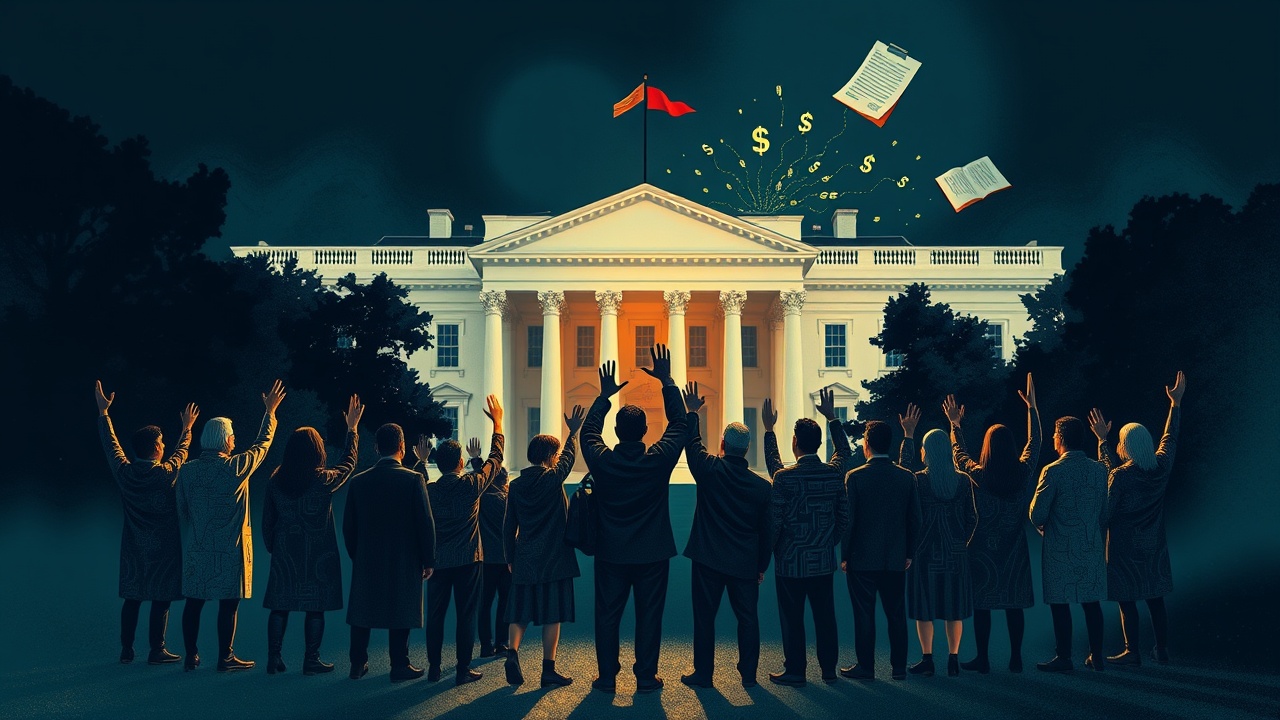Recent Developments in Cryptocurrency Regulation
In recent times, the shift in the landscape for cryptocurrency regulation can be attributed largely to President Donald Trump’s initiatives. During his campaign for a second term, Trump notably promised to pardon Ross Ulbricht, the infamous creator of Silk Road. True to his word, shortly after taking office, Trump issued a pardon for Ulbricht, who had been incarcerated for over ten years on charges related to money laundering and drug trafficking.
High-Profile Pardons and Their Impact
A mere two months later, the president expanded his clemency actions by pardoning Arthur Hayes alongside his BitMEX co-founders, Benjamin Delo and Samuel Reed, as well as former employee Gregory Dwyer, even including the company in the pardon. These high-profile pardons have ignited hope among other crypto entrepreneurs who find themselves facing legal troubles, leading some to actively pursue similar relief from the Trump administration.
Individuals Seeking Presidential Pardons
One of those individuals is Changpeng “CZ” Zhao, former CEO of Binance, who recently spoke with Rug Radio, a sister company to Decrypt. In this discussion, Zhao clarified that he is not attempting to barter for a pardon with Binance.US equity, as rumored in early 2025 after serving four months behind bars for money laundering. He stated,
“I’ve had zero discussions about Binance.US equity with anyone,”
asserting that his focus is solely on the legal proceedings surrounding his pardon application, which he initiated weeks prior to his Token2049 Dubai appearance.
Imprisoned FTX co-founder Sam Bankman-Fried, known as SBF, is reportedly seeking a presidential pardon as well. His parents, Joseph Bankman and Barbara Fried, both Stanford Law professors, are reportedly reaching out to individuals within Trump’s close circles to advocate on their son’s behalf. Bankman-Fried is serving a 25-year sentence after being found guilty of multiple fraud charges tied to the FTX collapse, and he is currently appealing the verdict.
In an eye-catching plea, Roger “Bitcoin Jesus” Ver, an early Bitcoin investor and promoter, sought Trump’s clemency in January through a video posted on social media platform X. Facing allegations of nearly $50 million in tax evasion, Ver’s situation is complicated by his renunciation of U.S. citizenship, leading Elon Musk to quip that he might not receive pardoning due to his current status. Ver was arrested in 2024 and is appealing extradition from Spain, where he is currently on bail, while spending $600,000 to lobby for his case through Trump associate Roger Stone.
Another name on the list is Jobadiah (or Joby) Weeks, who in 2020 confessed to conspiracy charges in connection to BitClub, one of the largest Ponzi schemes in the crypto realm that deceived investors out of $722 million. Although Weeks did not explicitly request a pardon, he has mentioned to Politico that it would be positive for Trump to intervene in his situation, and he has been advocating to dismiss his case since Trump took office, opting to self-represent his defense.
The Interplay of Politics and Cryptocurrency
As Trump’s administration continues to influence the crypto landscape, the growing interest in pardons among crypto founders shows the complex interplay between politics and digital currency. The implications of these legal matters will undoubtedly shape the future of cryptocurrency in the United States and beyond.




